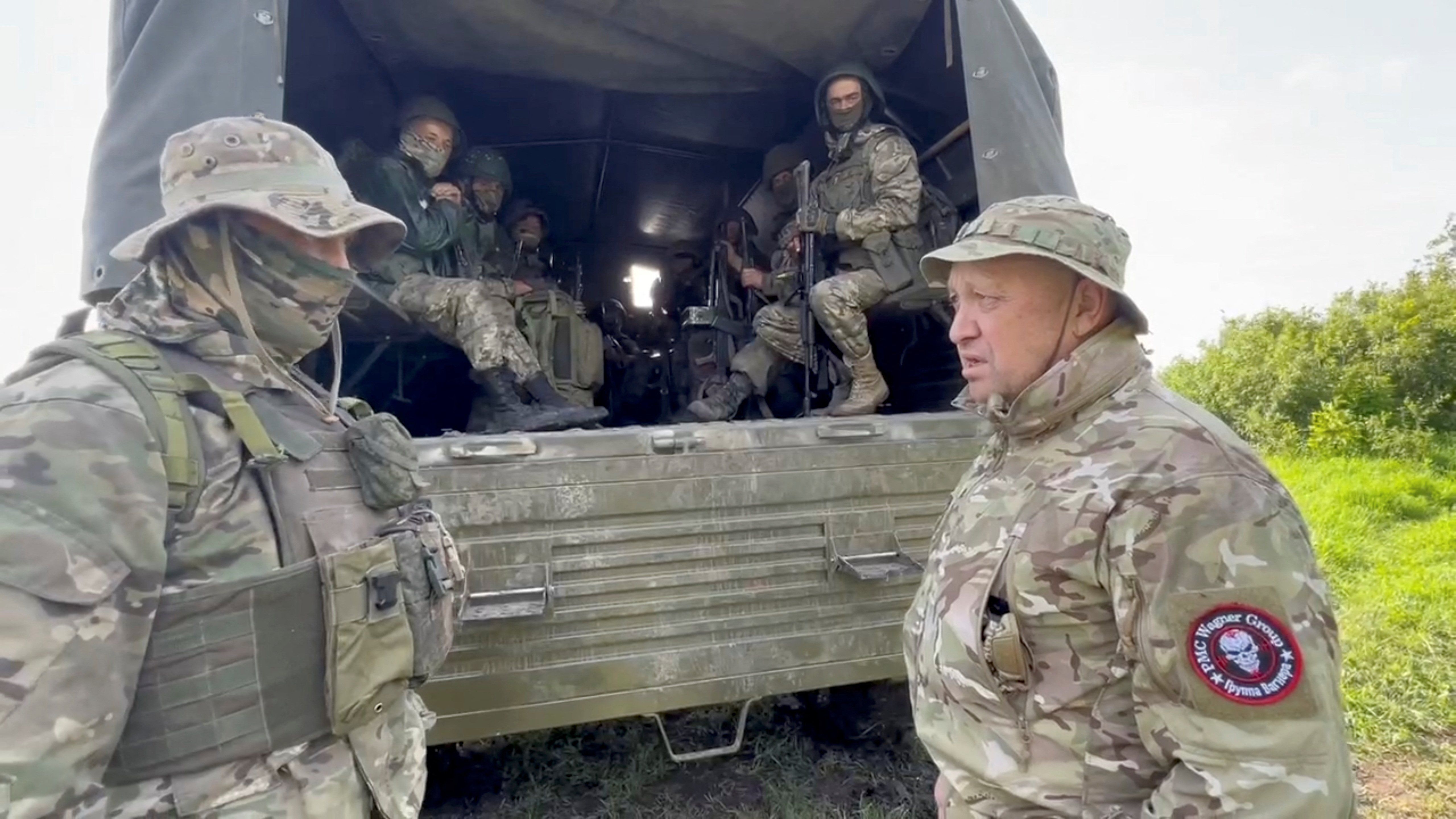Yevgeny Prigozhin, the hardline boss of the Wagner Group mercenary outfit, on Sunday turned down an order for his fighters to sign contracts with the Russian army by the end of June, which Defense Minister Sergei Shoigu says would make Russia's war machine more effective in Ukraine. (On Monday, Chechen warlord and Prigozhin rival Ramzan Kadyrov announced that his men had signed on the dotted line.)
Picking fights with Shoigu, with Kadyrov, or with Valery Gerasimov, the chief of the general staff, is nothing new for Prigozhin. But this very public feud is happening as the much-awaited Ukrainian counteroffensive is officially underway. “Russians in disarray” is not the narrative that Vladimir Putin wants to prevail at this crucial moment in the war.
Failing to rein in the Wagner Group would make it harder for the Russians to coordinate resisting Ukrainian forces as they try to retake Russian-held territory. And that, in turn, would have ripple effects beyond the country's borders: Russia needs to show Ukraine and its allies that it can withstand the advance and that showering Kyiv with more money and weapons is a fool's errand because only Russia can win a war of attrition.
Perhaps the best that Putin can hope for is that Prigozhin ultimately decides that Ukraine is not worth the trouble and follows through on his threat to pull out his soldiers of fortune to seek more lucrative contracts in Africa.
